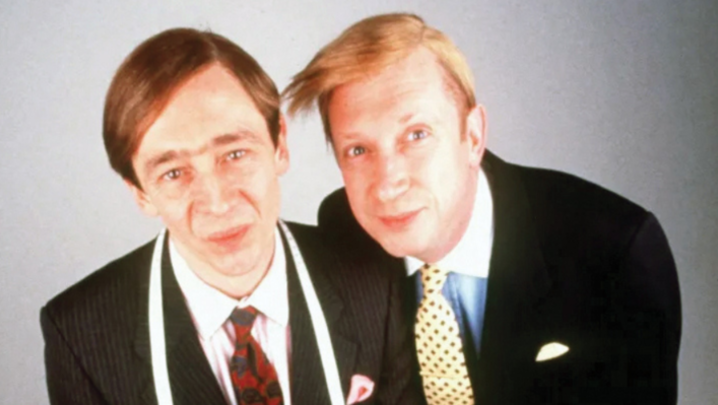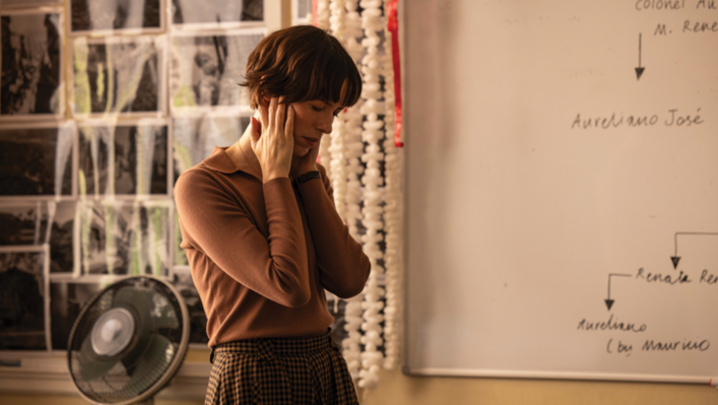Roger Mosey reviews Kicking the Bar: The life and legacy of broadcaster Huw Wheldon
‘The three duties of the broadcaster are to the subject, to the audience and to the craft.” Huw Wheldon’s achievements and words live on, 30 years after his death. I doubt that there is a BBC Director-General since his day who hasn’t used the great Wheldon incantation about public service broadcasting and its duty “to make the popular good and make the good popular”.
Wheldon himself was never DG – his most senior job was as Managing Director of BBC Television – but the people who did get the top job have seldom achieved his creative impact or his quotability.
It’s a struggle to remember soaring oratory from John Birt, successful though he was as a strategic leader. Greg Dyke, meanwhile, is best known for his blokeish “cut the crap”.
So this book by Huw’s son, Wynn, is to be welcomed for introducing a new generation to the Wheldon story and for its insight into a man whose approach to broadcasting is still much needed today.
What comes out strongly is his belief in excellence across the genres and that dumbing down, as we would now call it, is not what mass audiences want
Corporate apparatchiks and regulators, in particular, should note: “No real programme was ever made by a committee. You insure yourself against failure by having a committee, but you also insure against triumph.”
The Wheldon era in the BBC began when he became a presenter in the 1950s and blossomed with his management roles in the 1960s and 1970s.
It is right to be wary about claimed golden ages or the great man theory of television history. The fact is that this was a time when society was being transformed. Broadcasting was not immune to these forces and its own revolution was enabled partly by the pace of technical change.
But Wynn Wheldon is convincing in his portrayal of the stature of an individual who was at the heart of the coming of age of British television. His father’s life story is one that subsequent generations can barely imagine.
Huw took part in D-Day and he was awarded a Military Cross for his bravery. The citation said: “His fine display of courage and coolness was an outstanding example to his men.” Wheldon, however, wrote to his father: “When bravery was required I have, in most cases, shirked it, being miserably frail. Still, there it is.” He was one of the first British soldiers to see the horrors of Belsen. He never spoke about it.
This was a character also shaped by his Welsh ancestry. Some of his ideas are an echo of his grandfather, a noted Nonconformist preacher. In 1885, he was speaking of “men inspired with the ideal of duty, of justice, of undefiled affection, of great aims and great deeds” and the “infinite possibility of usefulness, work, art and beauty”. This inevitably suggests a torch being passed to the descendant who championed public service.
Huw became the presenter of the influential arts programme Monitor, although he did not uncritically worship creativity. “I hate all picture galleries, without exception,” he wrote. “This afternoon, I went to the Louvre. I loathed it… I don’t like any artists. None at all. Late extra: except Rembrandt.”
Wynn makes much of his father’s sense of being an outsider – Welsh and non-Oxbridge. This may be a little overdone. Huw’s father had gone to Cambridge and had a distinguished career in education and government, ending up with a knighthood.
Huw, himself, went to the London School of Economics in the great era of Harold Laski. When we come across him in middle life, he seems very much at home in the agreeable surroundings of Kew, with the Attenboroughs round the corner, and then moving to Richmond Hill.
Although usually a Liberal, he voted for Churchill in 1945 and Thatcher in 1979. Later, we’re told that he informed a programme producer that his favourite walk was not, as they’d hoped, in rural Wales, but from the LSE to the Garrick Club, “of which he was an enthusiastic member”.
What comes out strongly is his belief in excellence across the genres and that dumbing down, as we would now call it, is not what mass audiences want: quality matters as much in entertainment as in Shakespeare.
There is a contemporary echo in his belief that “programmes that are calculated rather than made... are slums of the spirit and slums of the mind”. Let us hope this prompts a twinge of guilt in the people who commissioned recent shockers on all channels.
Filial biographies have their place, and this one captures well the love within a family
Filial biographies have their strengths, and this one captures well the love within a family and the pride in the achievements when dad is a national figure. But there are gaps, too. Wynn doesn’t find out what his educationalist grandfather did: “I have never been really clear what a registrar was or is.”
Nor does he have any knowledge of the mechanics of television (“I continue to be baffled by the mystery of how pictures and sounds scuttle through the air”) and he’s hazy about the even more impenetrable workings of the BBC.
When his father first gets a production job, an unpursued aside tells us that he was already working as a television presenter on a show featuring talented children. The editor/presenter/impresario role on Monitor, with its stellar film-makers – from Ken Russell to John Schlesinger – is rather better articulated.
Later, we don’t get much understanding of what Huw’s management roles entailed or even their titles. When the dopey BBC governors don’t promote him to DG, we’re not told what job he actually got.
That is probably because there are three things going on in this book. There is a biography, which is good in parts. There is a portrait of a family, which is often touching. And then there are some musings about father and son relationships, or about life in general, which edge towards the banal. “We endlessly recreate the past,” writes Wynn. “The concerns of the present are immediate, and the past must continuously be brought into line. This is the job of the historian, and the reason why there is always work for him. He has no choice.”
Wynn’s choices are, at times, unfortunate: a marvellous story about his father in the war is interrupted by his own experience as a hunt saboteur. Wheldon Jnr is also keen to tell us about his snorting of cocaine in a toilet in Washington (de rigueur, apparently) and precisely when he lost his virginity. Readers may sympathise with Huw, who once threw a flowerpot at Wynn when he was angry with him.
This also points to the questions that linger after reading this book. We glimpse aspects of Huw’s character more through others. It is his daughter who speaks of his occasional “towering and terrifying anger”, and it is Robin Day who mentions “his shortcomings, such as talking too much and enjoying being a personality too much”.
But Wynn’s recollections of his kindliness are convincing, and there is much to enjoy in the tales that are told. There is, ultimately, no doubt about Huw’s greatness as a broadcaster and as a man. His is a story that can and should inspire our industry today.
Roger Mosey is Master of Selwyn College, Cambridge, and a former BBC executive.







